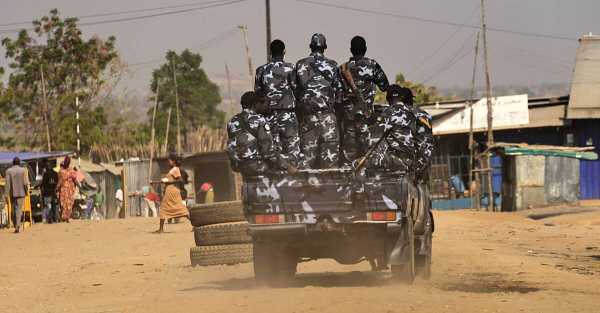The systems would allow the United States to provide more protection for American troops at bases in Iraq, Syria and elsewhere.
- Share full article

Israeli soldiers on Wednesday. Prime Minister Benjamin Netanyahu of Israel said he “won’t detail all the considerations we’re taking into account, most of them totally unknown to the public.”
The Biden administration has asked Israel to delay a ground invasion of Gaza for a few days to give the United States more time to put air defense batteries, fighter planes and other military assets in place to protect American troops, U.S. officials said.
U.S. officials have been pushing Israel for a delay for multiple reasons. They include giving more time to negotiate the release of hostages held in Gaza, allowing more aid into the region and providing the Israeli military with time to refine its military objectives and potentially move away from a grinding urban fight that would incur large casualties.
Prime Minister Benjamin Netanyahu of Israel has held off on a land invasion in the nearly three weeks since Hamas attacked Israel on Oct. 7. The Israeli government says more than 1,400 civilians and soldiers were killed, and 200 hostages were taken back to Gaza.
The prime minister’s office declined to comment. Earlier on Wednesday, Mr. Netanyahu said the Israeli military was still preparing for a ground operation in the Gaza Strip. “I will not spell out when, how, how much,” he said. “I also won’t detail all the considerations we’re taking into account, most of them totally unknown to the public.”
Biden administration officials say they still support Israel’s ground invasion and Israel’s goal of eradicating Hamas.
American officials say it will take them a few more days to get many of those new antimissile batteries in place. Another U.S. official said the United States already had some air defense assets in the region that have been protecting troops from attacks in Syria.
The Financial Times reported earlier on the request to delay the ground invasion to give time to get the air defense assets in place.
The Biden administration has rushed two aircraft carriers and additional troops to the eastern Mediterranean near Israel to deter Iran and its proxies in the region from engaging in a regional war. A U.S. Navy warship in the northern Red Sea last Thursday shot down at least three cruise missiles and several drones launched from Yemen that the Pentagon said might have been headed toward Israel.
“I believe there is concern that our bases in Syria and Iraq, especially Syria, could be attacked by a wave of drones and it could overwhelm the defenses currently there,” said Mick Mulroy, a former defense official and retired C.I.A. officer.
American officials have repeatedly raised with Israelis their concerns that Iran or Hezbollah, the Lebanese political and militia group backed by Tehran, might open a second front after Israel commits much of its military to eliminating Hamas in Gaza. For now, the United States has assessed that Iran and Hezbollah, whose leaders did not know Hamas was planning such a large-scale attack, want to remain on the sidelines.
But a major ground invasion of Gaza, particularly one that kills a large numbers of Palestinians, could change Iran’s or Hezbollah’s calculations.
The American officials have urged Mr. Netanyahu’s war cabinet to give Washington more time to place antimissile batteries to protect both Israel and American troops in the region, according to several American officials.
While the air defense batteries may not be crucial to the Israeli government’s calculations, one senior American official said the Israelis needed more time to train their troops before they headed into urban warfare and into the underground tunnels below Gaza.
Washington’s main concern is protecting American troops. But the United States also believes that Israel may not have the capability to respond to a two-front war. The assembled antimissile systems, and the weapons carried aboard the aircraft carrier group in the Eastern Mediterranean, could prove a critical deterrent against Iran.
“The United States does not seek conflict with Iran,” Secretary of State Antony J. Blinken said at the United Nations on Tuesday. “We do not want this war to widen. But if Iran or its proxies attack U.S. personnel anywhere, make no mistake: We will defend our people, we will defend our security — swiftly and decisively.”
Israel has responded to the Hamas attack with a relentless artillery and bombing campaign that has killed 5,700 Palestinians, according to the Hamas-run Gazan Health Ministry.
Julian E. Barnes and Aaron Boxerman contributed reporting.
David E. Sanger is a White House and national security correspondent. In a 38-year reporting career for The Times, he has been on three teams that have won Pulitzer Prizes, most recently in 2017 for international reporting. His newest book is “The Perfect Weapon: War, Sabotage and Fear in the Cyber Age.” More about David E. Sanger
Eric Schmitt is a senior writer who has traveled the world covering terrorism and national security. He was also the Pentagon correspondent. A member of the Times staff since 1983, he has shared four Pulitzer Prizes. More about Eric Schmitt
- Share full article
SKIP ADVERTISEMENT
Source: nytimes.com



